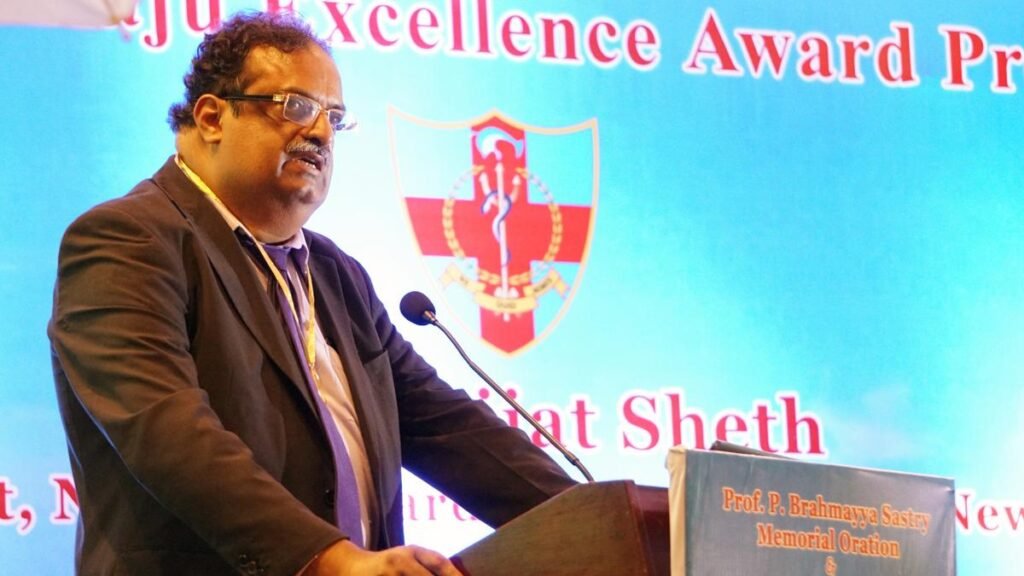Dr. Abhijat Sheth’s appointment comes amid controversies and a Central Bureau of Investigation probe into alleged corruption in the process of securing approvals for private medical colleges. File
| Photo Credit: C.V. Subrahmanyam
Coordinated teamwork, a uniform licensing process for doctors across India, and improving the perception of the National Medical Commission (NMC) were among the priority areas for work for the statutory body, Abhijat Sheth, the newly appointed Chairperson of the Commission, told The Hindu in an exclusive interview.
Dr. Seth’s appointment comes amid controversies and a Central Bureau of Investigation (CBI) probe into alleged corruption in the process of securing approvals for private medical colleges.
Stating that he wouldn’t be able to comment on the CBI probe into alleged bribery, Dr. Seth, however, said that the current trend of “MBBS seat booking” costing many lakhs of rupees at several private medical colleges was a matter of concern. “What exchange is taking place (between students and medical college authorities) is very difficult to confirm for the Commission. This is a matter for investigating agencies to probe,” he said, adding that the high cost of an MBBS programme, the basic medical undergraduate degree in India, in a private institution could be because quality in education doesn’t come cheap.

“Most of us don’t look at the cost incurred by the government sector to educate a doctor. When compared to that quality, (the cost of) private education seems expensive,” Dr. Sheth said.
“This is all a matter of perception. Yes, the perception is that the fee is very high…but I’m sure that we, as a team, will be able to, over time, see how best we can optimise this,” he said.
The fee structure and cost must be controlled to a level that is comfortable to an average family, he added.
“We want the private medical institutes to survive, and we want that education is affordable,” he said.
India has many well-developed government medical institutions with huge capacity for student intake, Dr. Sheth said. “We must ensure that they are working at their full capacity. The Central government has brought in many initiatives to increase medical seats, and to ensure that their organisations are able to work at full capacity for this. Currently, we feel that we aren’t using these institutes to their full capacity — this is an area we need to explore,” the NMC Chairperson said.

In India, only 40% of the medical services sector — education, diagnostic services, and treatment — is with the government, Dr. Sheth said, speaking of the private sector’s role in healthcare.
“So, (in) training doctors to use the latest and new technology, etc., we have to bring in the private sector. For this, we must work closely with them as partners in the healthcare ecosystem. The Commission is looking at greater collaboration and commitment from the private sector. This is a resource which we would like to engage and harness,” he said.
“They (private medical facilities) have huge learning resources with them. We are actively looking at how best to integrate them,” he added.
Also read: Medical education in India is at a crossroads; here’s a road map
The immediate focus at the NMC would be to improve the quality of education, promote good governance, and make access to the NMC easy for students and doctors, the Chairperson of the regulatory body said.
“Also, all the unnecessary lengthy procedures and processes are to be minimised. This must be replaced with coordinated and sustained teamwork,” Dr. Sheth said.
Published – July 19, 2025 07:46 pm IST

